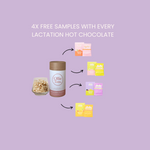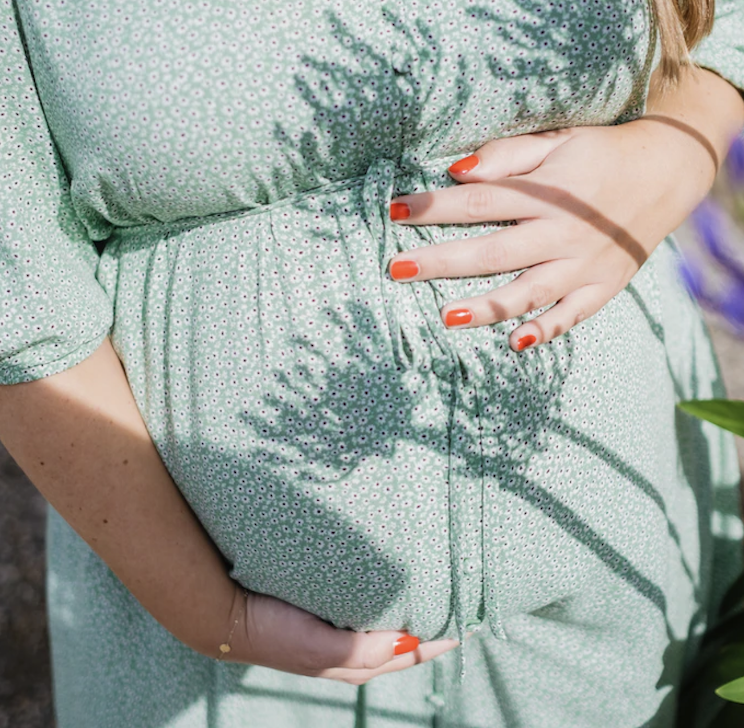Adequate hydration is critical for the maintenance of life – and even more so during pregnancy and whilst breastfeeding. Hydration is described as the ‘process of maintaining water balance’ whilst dehydration is defined as ‘the process of losing body water’.1
Water accounts for approximately 55-56% of body weight.2 Blood is composed of 83% water.3
During pregnancy and the breastfeeding periods, women are encouraged to increase their water intake to meet to increase fluid needs of their body.
Pregnancy:
Pregnancy comes with a wide variety of physical, mental and psychological changes (and challenges!). One of those major changes is blood volume (so the amount of blood you have circulating in your body) and hydration requirements. The hydration needs increase during pregnancy.
So why do we need to increase hydration during pregnancy? Well, the blood volume during pregnancy increases by approximately 6% in the first trimester, 18-29% between weeks 14-27, and 40-50% by the end of the third trimester. So ultimately, by the end of the pregnancy, you have one and a half times increase in blood volume compared to a non-pregnant person.4
Let’s put this into perspective. For a pregnant woman who gains 11kg during the entire pregnancy, approximately 7-8 litres comes from water retention.5 This is why it’s critically important to maintain the appropriate amount of hydration required in pregnancy.
What does hydration provide for my baby? Well, you need hydration to:
- Provide the water needed to form the amniotic fluid that surrounds and cushions your baby (hydration directly affects the amniotic fluid)
- Produce the additional blood supply to your circulation and support your expanding plasma volume
- Produce the additional blood supply needed to support baby’s circulation
- Improve your digestion and aid in absorption of water-soluble vitamins2
- Carry the additional (and required) nutrients from your diet
- Eliminating waste products
- Maintain your body temperature
- Ensure there is enough reserve to tolerate blood loss during delivery2
Despite these facts, studies have shown that many pregnancy women have insufficient water intake.3
Breastfeeding:
Breastfeeding women need extra water intake and nutrients to support the ongoing supply of breastmilk to your baby. Water makes up 87% of breastmilk and hence breastfeeding women need to replace this fluid loss to maintain their hydration level.6
On average, breastfeeding women produce 780ml of breastmilk per day for the first 6 months. This is equivalent to 700mls of water and so to replace this loss, they must drink 700ml above their normal daily requirement to maintain the balance of hydration.6
Let’s compare:
The table below is according to the ‘Nutrient Reference Values for Australia and New Zealand’6 shows a significant increase in the total water requirements for pregnant and breastfeeding women
|
Ages 19-50 years old |
Total water (food + fluids) |
Fluids (including plain water, milk and other drinks) |
|
Women |
2.8L/day |
2.1L/day (8 and a bit cups) |
|
Pregnancy |
3.1L/day |
2.3L/day (9 and a bit cups) |
|
Lactation |
3.5L/day |
2.6L/day (10 and a bit cups) |
And that’s why we’ve curated a hydration booster for pregnant and breastfeeding women with the aim to aid in encouraging women to stay hydrated. We’ve got you.
References:
-
https://www.ncbi.nlm.nih.gov/pmc/articles/PMC6356561/
-
https://www.ncbi.nlm.nih.gov/pmc/articles/PMC1595116/#:~:text=Pregnancy%20Needs,glasses%20of%20water%20each%20day.
-
https://bmcpregnancychildbirth.biomedcentral.com/articles/10.1186/s12884-020-2765-x
-
https://bmcpregnancychildbirth.biomedcentral.com/articles/10.1186/s12884-019-2619-6
-
https://bmcpregnancychildbirth.biomedcentral.com/articles/10.1186/s12884-019-2301-z#:~:text=On%20average%2C%20the%20TWI%20of,the%20adequate%20intake%20(AI).
-
https://www.eatforhealth.gov.au/nutrient-reference-values/nutrients/water












